
Focsani: The Heart of Vrancea County
Nestled in the picturesque region of Vrancea County, Focsani is a hidden gem that offers a unique blend of history, culture, and natural beauty. Known for its wine production and scenic landscapes, Focsani provides an authentic Romanian experience away from the hustle and bustle of more tourist-heavy destinations. Stroll through the city center and you'll find charming streets lined with historic buildings, quaint cafes, and vibrant markets. The Union Square is a must-see, commemorating the historic union of Moldavia and Wallachia. Nearby, the Alexander Ioan Cuza Memorial House offers a glimpse into the life of one of Romania's most significant historical figures. For nature lovers, the surrounding vineyards and rolling hills offer ample opportunities for wine tasting and hiking. The Focsani Wine Route is particularly popular, giving visitors a chance to sample some of Romania's finest wines while enjoying stunning views of the countryside. Don't miss the Crang Park, a beautiful green space perfect for a leisurely afternoon walk or a family picnic. Focsani is also known for its vibrant festivals and cultural events. The Focsani Blues Festival and the Vrancea Wine Festival are just two examples of the city's lively cultural scene. These events provide a fantastic opportunity to mingle with locals and experience the city's rich traditions and warm hospitality.
Local tips in Focsani
- Visit the Union Square to learn about the historic union of Moldavia and Wallachia.
- Take a tour of the Focsani Wine Route to sample local wines and enjoy stunning countryside views.
- Explore Crang Park for a relaxing afternoon surrounded by nature.
- Check the local calendar for festivals like the Focsani Blues Festival and the Vrancea Wine Festival.
- Visit the Alexander Ioan Cuza Memorial House to delve into Romanian history.
Focsani: The Heart of Vrancea County
Nestled in the picturesque region of Vrancea County, Focsani is a hidden gem that offers a unique blend of history, culture, and natural beauty. Known for its wine production and scenic landscapes, Focsani provides an authentic Romanian experience away from the hustle and bustle of more tourist-heavy destinations. Stroll through the city center and you'll find charming streets lined with historic buildings, quaint cafes, and vibrant markets. The Union Square is a must-see, commemorating the historic union of Moldavia and Wallachia. Nearby, the Alexander Ioan Cuza Memorial House offers a glimpse into the life of one of Romania's most significant historical figures. For nature lovers, the surrounding vineyards and rolling hills offer ample opportunities for wine tasting and hiking. The Focsani Wine Route is particularly popular, giving visitors a chance to sample some of Romania's finest wines while enjoying stunning views of the countryside. Don't miss the Crang Park, a beautiful green space perfect for a leisurely afternoon walk or a family picnic. Focsani is also known for its vibrant festivals and cultural events. The Focsani Blues Festival and the Vrancea Wine Festival are just two examples of the city's lively cultural scene. These events provide a fantastic opportunity to mingle with locals and experience the city's rich traditions and warm hospitality.
When is the best time to go to Focsani?
Iconic landmarks you can’t miss
Monumentul istoric ”Ansamblul Piaţa Unirii”
Discover the cultural heart of Focșani at the historic Ensemble of Piața Unirii, a striking landmark filled with charm and local heritage.
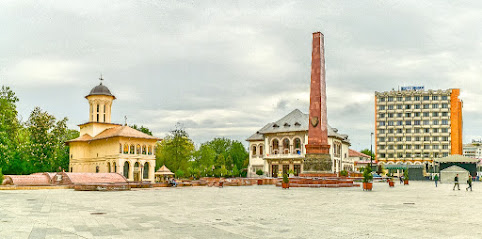
Popular Athenaeum Maior Gheorghe Pastia
Explore the vibrant arts scene at Popular Athenaeum Maior Gheorghe Pastia in Focșani, a cultural center for unforgettable performances and experiences.
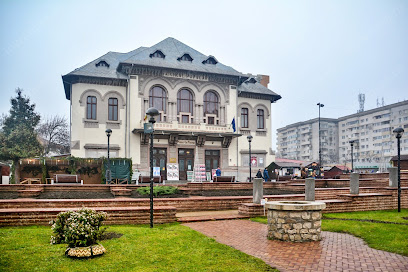
Muzeul Unirii
Discover the rich history of Romania at Muzeul Unirii in Focșani, where the past comes alive through engaging exhibits and artifacts.
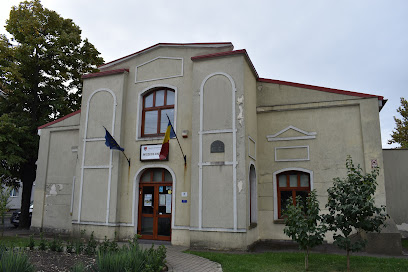
Monumentul istoric ”Mausoleul Eroilor (1916 - 1919)” Focșani
Honor the brave at the Mausoleum of Heroes in Focșani, a poignant tribute to Romania's World War I soldiers amidst beautiful surroundings.
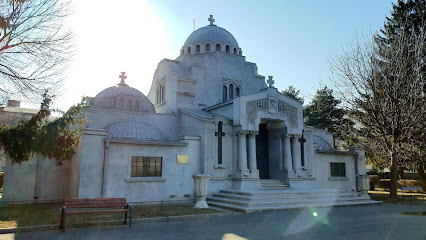
Monumentul istoric ”Bornă de hotar”
Discover the captivating historical significance of 'Bornă de Hotar' in Focșani, where the past meets the present in a beautiful setting.
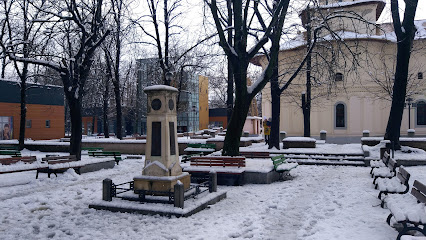
Centrul Național de Informare și Promovare Turistică
Explore Focșani with essential insights and local tips at the Centrul Național de Informare și Promovare Turistică, your guide to this enchanting Romanian city.
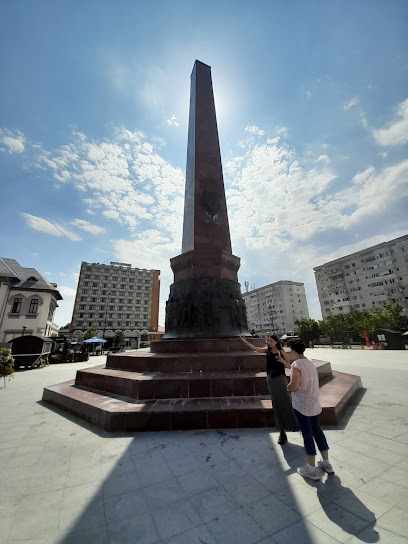
Directorate for Culture Vrancea
Explore the vibrant cultural scene at the Directorate for Culture Vrancea, where local traditions and artistic expressions come alive in Focșani, Romania.
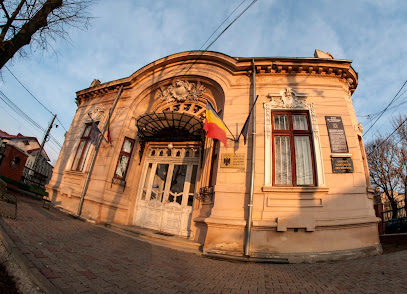
Statuia Independenței - Focșani
Discover the Independence Statue of Focșani, a historic landmark that celebrates Romania's enduring spirit and offers a glimpse into its rich cultural heritage.
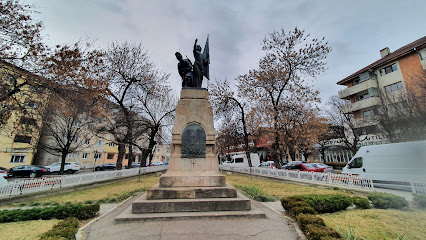
Statuia lui Ion Mincu
Explore the Statuia lui Ion Mincu in Focșani, a stunning tribute to Romania's architectural heritage and a must-visit for culture enthusiasts.
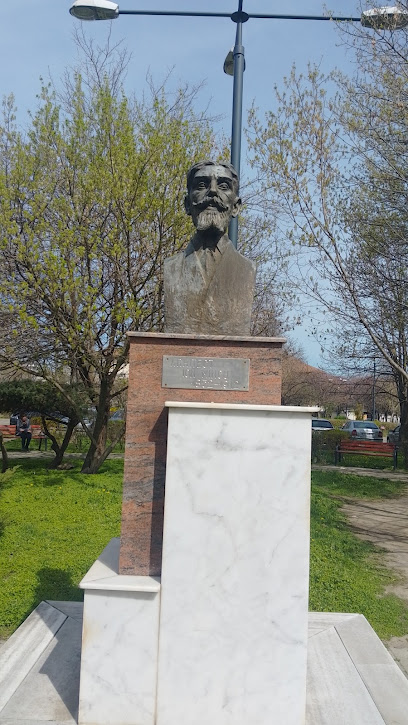
Monumentul istoric ”Fosta Cameră de comerţ” (sec. XIX)
Explore the 19th-century Former Chamber of Commerce in Focșani, a landmark rich in history and architectural beauty.
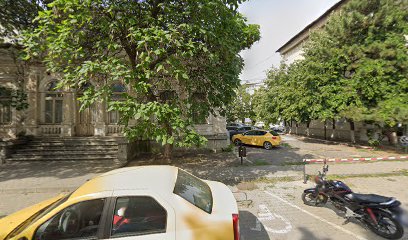
Monumentul istoric ”Clădirea Prefecturii”
Explore the stunning Prefecture Building in Focșani, a historical landmark that showcases the rich culture and architectural beauty of Romania.
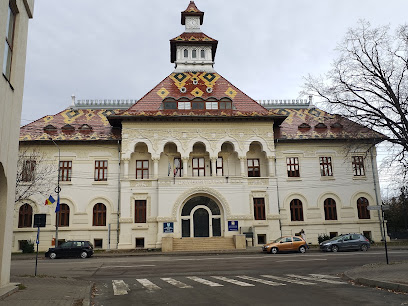
Unmissable attractions to see
Parcul Natural Putna - Vrancea
Explore the breathtaking landscapes and diverse wildlife of Parcul Natural Putna - Vrancea, a hidden gem in Romania's natural heritage.
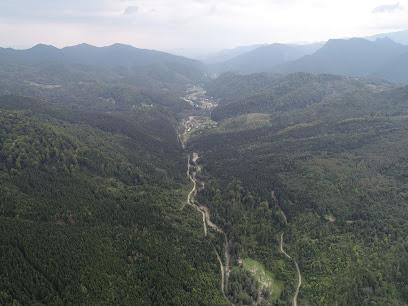
Grădina Publică Focșani
Discover the tranquility and beauty of Grădina Publică Focșani, a serene park perfect for relaxation and enjoying nature in the heart of the city.
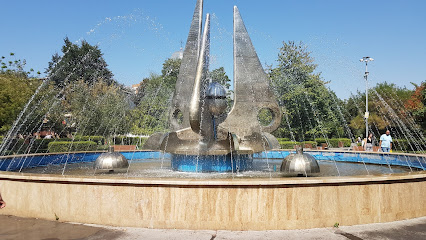
Parc Robert Schuman Focşani
Experience the tranquility and natural beauty of Parc Robert Schuman, Focșani's lush urban escape perfect for relaxation and recreation.
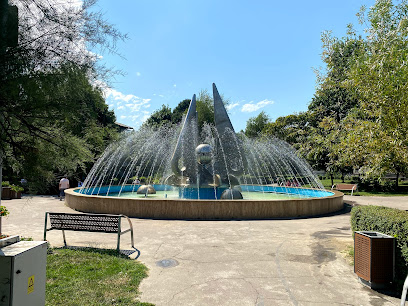
Parcul Nicolae Bălcescu
Explore Parcul Nicolae Bălcescu, a beautiful state park in Focșani, perfect for relaxation, picnics, and enjoying nature's tranquility.
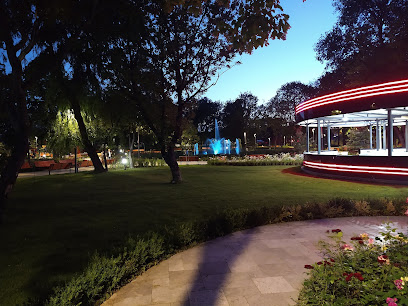
Muzeul Unirii
Explore the rich history of Romania's unification at Muzeul Unirii in Focșani, where fascinating exhibits bring the past to life.
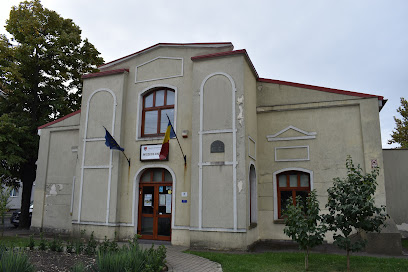
Parcul Teatru – Mr. Gh. Pastia Focșani
Explore the lush greenery and vibrant culture of Parcul Teatru – Mr. Gh. Pastia, Focșani's inviting city park perfect for relaxation and leisure.
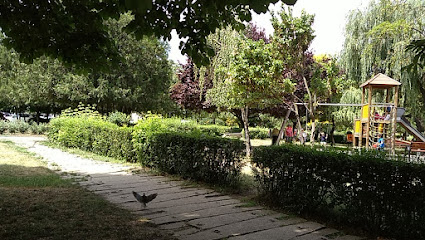
History Museum
Discover the rich heritage of Vrancea County at the History Museum in Focșani, a treasure trove of cultural artifacts and historical narratives.
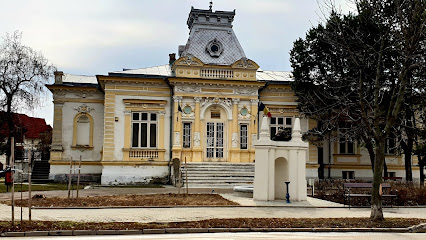
Monumentul istoric ”Mausoleul Eroilor (1916 - 1919)” Focșani
Discover the Mausoleul Eroilor in Focșani, a historic monument honoring World War I heroes amidst serene gardens, perfect for reflection and remembrance.
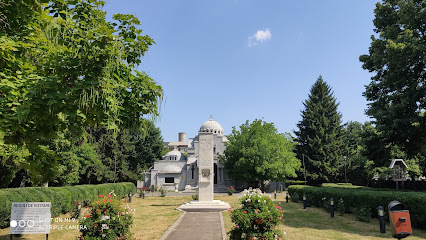
Piața Gării
Experience the serene escape of Piața Gării, a beautiful park in Focșani, perfect for relaxation, family outings, and local cultural events.
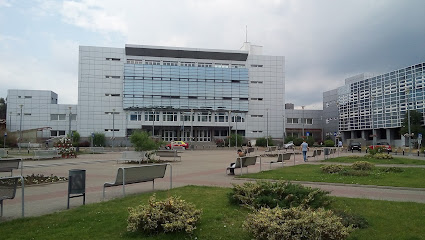
Parc
Experience the tranquility and beauty of Parc in Focșani, a perfect retreat for nature lovers and families alike.
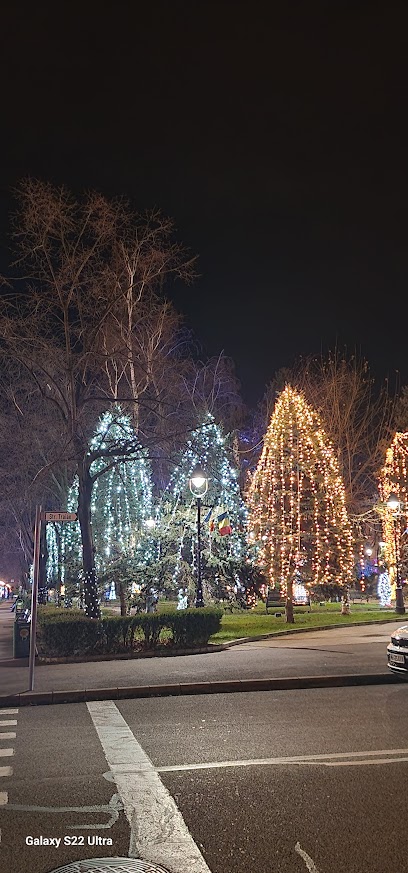
Monumentul istoric ”Bornă de hotar”
Explore the historic 'Borna de Hotar' in Focșani, a monument that embodies the cultural heritage and vibrant history of Romania.
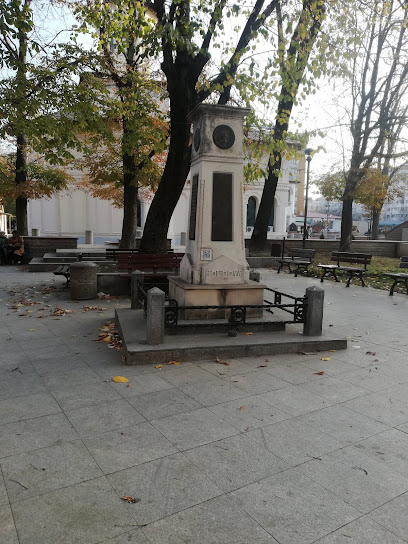
Muzeul de Științe ale Naturii Focșani
Explore the fascinating world of nature at Muzeul de Științe ale Naturii in Focșani, Romania – a must-visit for nature enthusiasts and families alike.
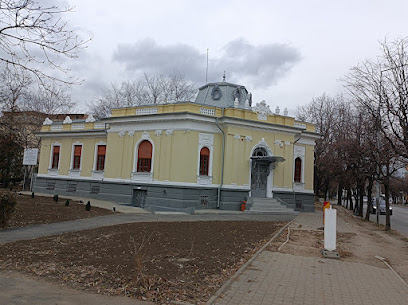
Spate La Gară
Explore Spate La Gară, a captivating tourist attraction in Focșani, Romania, where history, culture, and stunning landscapes unite for an unforgettable experience.
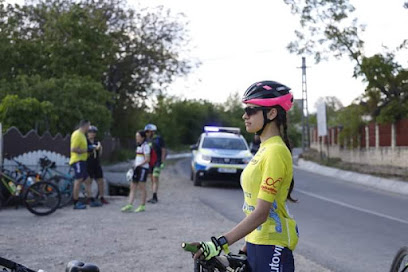
Parc Pompieri Catrinoiu
Explore the serene beauty of Parc Pompieri Catrinoiu in Focșani, a perfect escape for nature lovers and families alike.
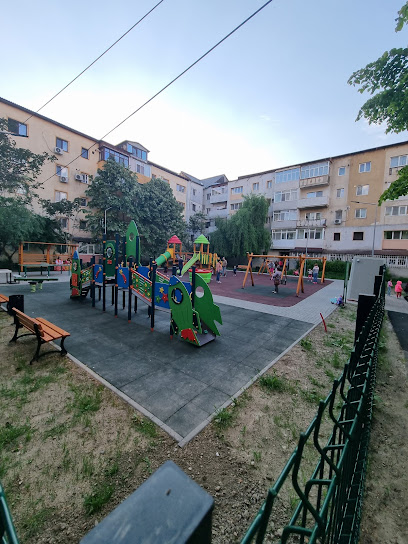
Parcu' Negru
Discover the tranquil beauty of Parcu' Negru in Focșani, a perfect park for relaxation and connecting with nature.
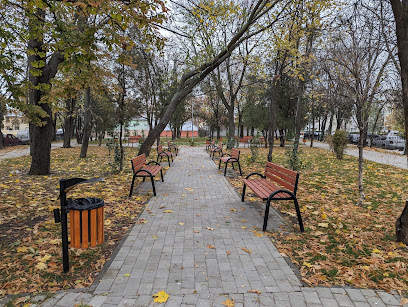
Essential places to dine
Casa Vrânceană
Discover the authentic tastes of Romania at Casa Vrânceană - where tradition meets modern gastronomy in Focșani.
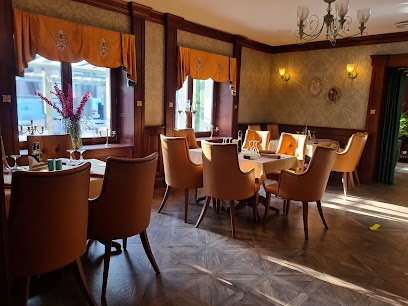
Intim
Experience the best pizza and cozy lounge vibes at Intim in Focșani – where culinary delights meet inviting ambiance.
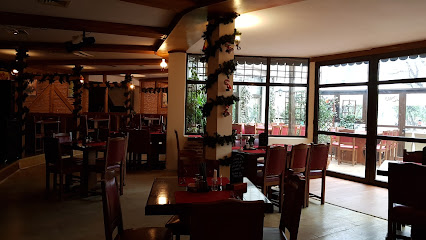
Urban Bistro & Events
Experience the vibrant flavors of Romania at Urban Bistro & Events in Focșani – where delicious food meets great ambiance.
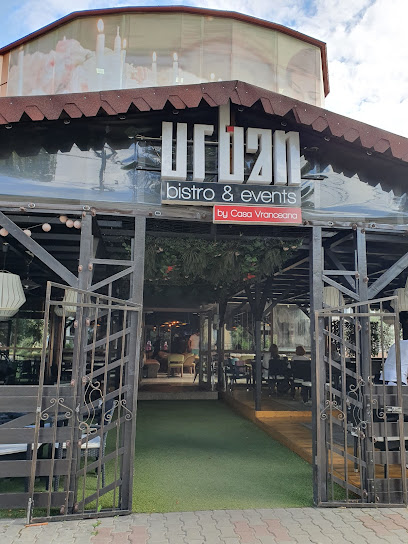
Wassermann Restaurant
Discover culinary excellence at Wassermann Restaurant in Focșani - where local flavors meet international cuisine.
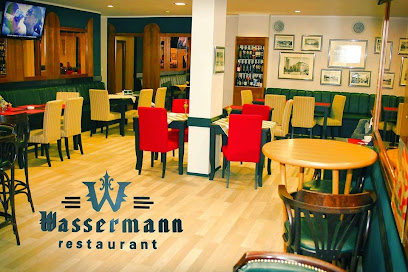
Green Paradise Laguna
Experience exquisite dining at Green Paradise Laguna in Focșani – where culinary excellence meets serene ambiance.
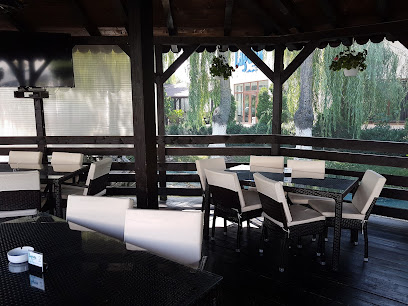
Restaurant Wild West
Discover the vibrant flavors and lively atmosphere at Restaurant Wild West – your premier dining destination in Focșani.
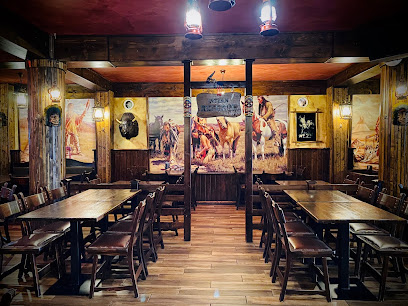
Restaurant - Fusion Restaurant & Lounge
Discover Fusion Restaurant & Lounge in Focșani - where pizza meets international cuisine in a vibrant setting perfect for all occasions.
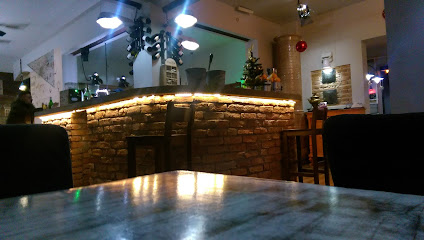
Restaurant Oscar
Experience exquisite seafood dining at Restaurant Oscar in Focșani – where every meal is crafted with passion and fresh ingredients.
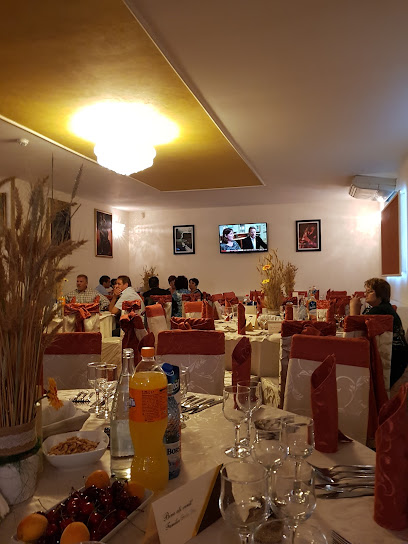
Trattoria da Giuseppe
Experience authentic Italian flavors at Trattoria da Giuseppe in Focșani – where every meal feels like a celebration.
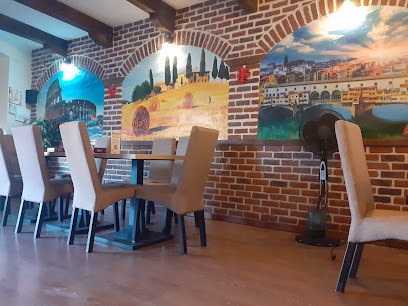
Romantic
Experience the essence of romance with delectable cuisine at Restaurant Romantic in Focșani.
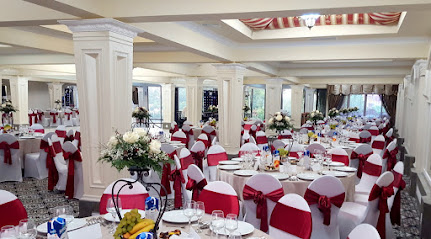
Tepte Steak House
Experience authentic Turkish cuisine at Tepte Steak House in Focșani – where every meal is a celebration of flavor and culture.
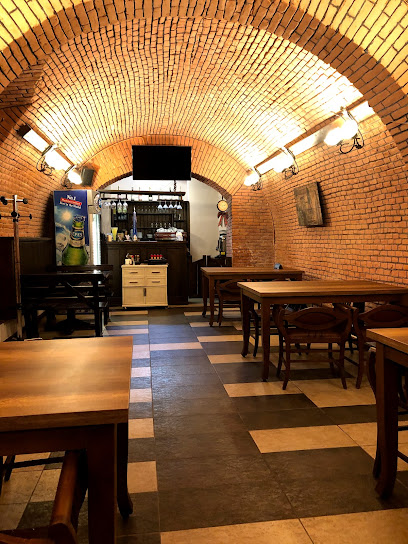
Grand'Or
Experience authentic Romanian flavors at Grand'Or in Focșani – where culinary tradition meets modern taste.
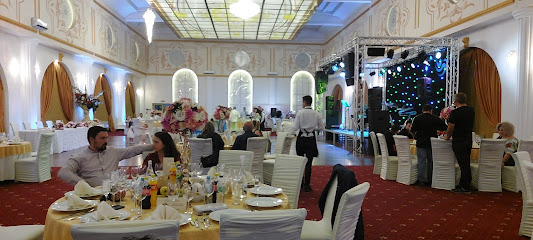
Restaurant Italian Il Piacere Focsani
Experience authentic Italian cuisine at Il Piacere in Focșani – where every meal is a celebration of flavor and tradition.
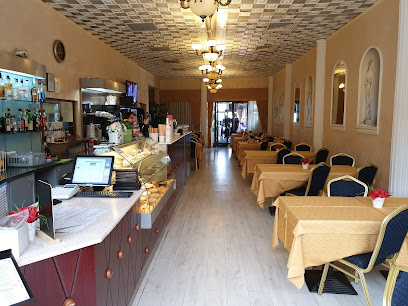
Il Gusto
Experience the rich flavors of Romania and beyond at Il Gusto – Focșani's premier dining destination.
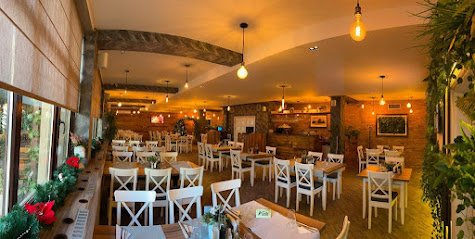
Casa Veche
Experience authentic Romanian flavors at Casa Veche in Focșani - where tradition meets taste in a warm and inviting atmosphere.
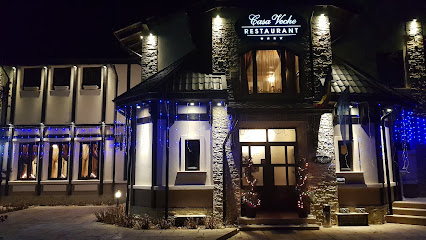
Markets, malls and hidden boutiques
Focșani Mall
Discover Focșani Mall, a vibrant shopping center with a diverse range of stores, dining, and entertainment options in the heart of Focșani, Romania.
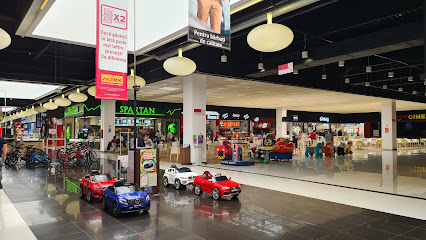
Milcov
Explore Milcov in Focșani for an unforgettable shopping experience featuring trendy clothing and local fashion styles.
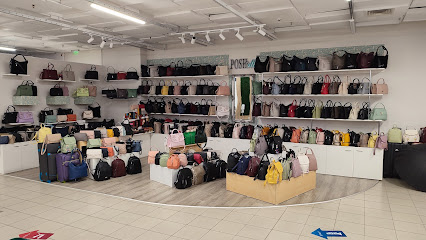
Paco Supermarket
Explore the vibrant offerings of Paco Supermarket in Focșani, where local flavors meet boutique shopping for an unforgettable experience.
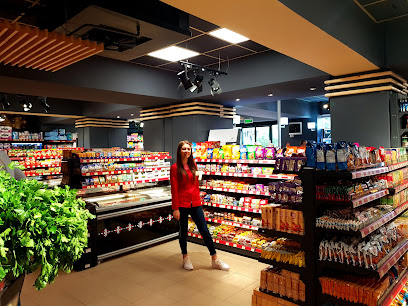
Focșani Value Centre
Explore Focșani Value Centre, your ultimate shopping destination in Focșani offering diverse brands, dining, and vibrant cultural experiences.
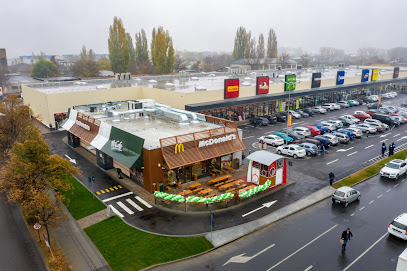
Rochii mireasa Focsani Eden's Bridal Boutique
Discover your dream wedding dress at Eden's Bridal Boutique in Focșani - where elegance meets personalized service for every bride.
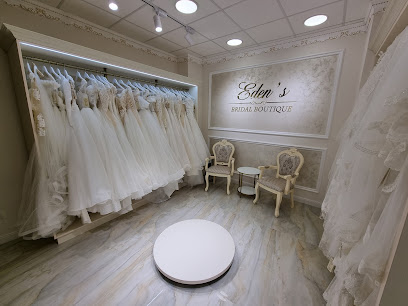
H&M
Explore trendy and affordable clothing for the whole family at H&M in Focșani, the ultimate fashion destination.
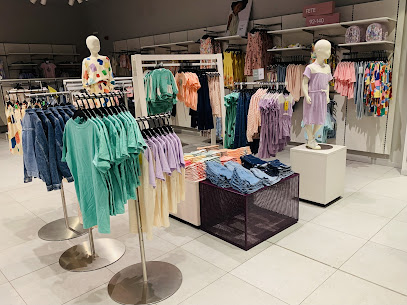
PAZZO Men’s Store
Explore PAZZO Men’s Store in Focșani for trendy and stylish men's clothing that defines modern elegance and quality.
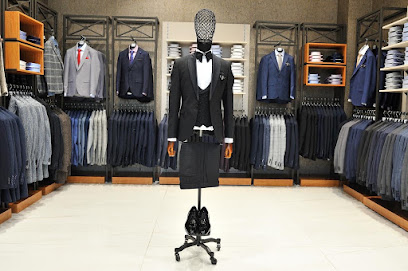
Blue Topaz Focsani
Explore Blue Topaz in Focsani for exquisite gifts and jewelry, perfect for souvenirs or special occasions, reflecting local craftsmanship.
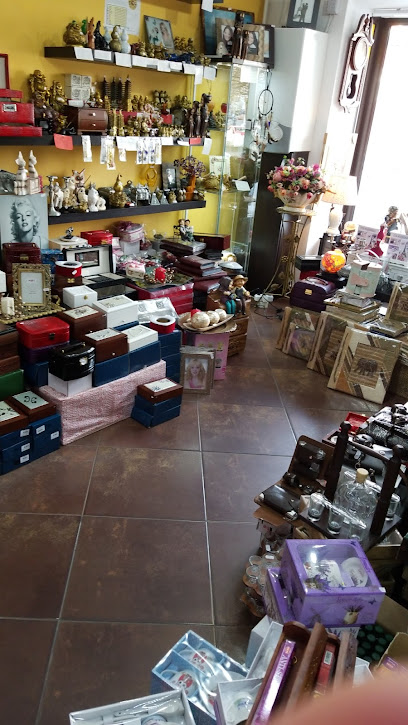
Designer Outlet Focsani
Discover incredible savings on top brands at Designer Outlet Focsani, a must-visit shopping destination in Romania.
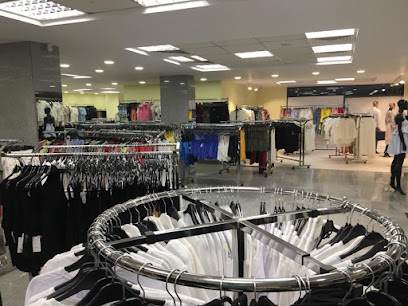
Dragonul Roșu
Explore Dragonul Roșu in Focșani for a unique shopping experience filled with local fashion trends and styles.
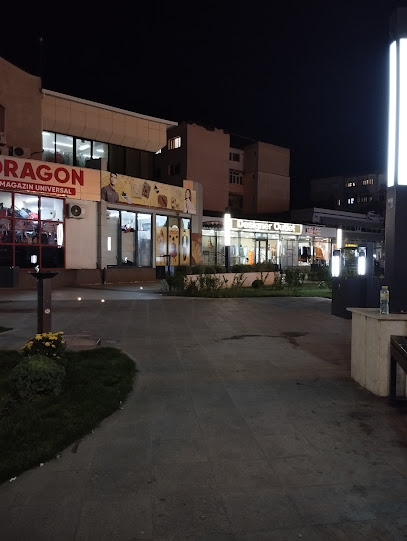
Ladies' Store
Explore the chic elegance of Focșani's Ladies' Store, where fashion meets charm in a delightful shopping experience for women.
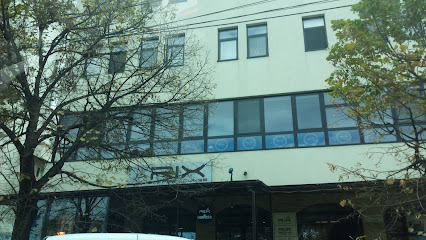
AVANTAJ second hand FOCSANI
Explore the sustainable fashion scene at AVANTAJ Second Hand in Focșani, where unique clothing treasures await every savvy shopper.
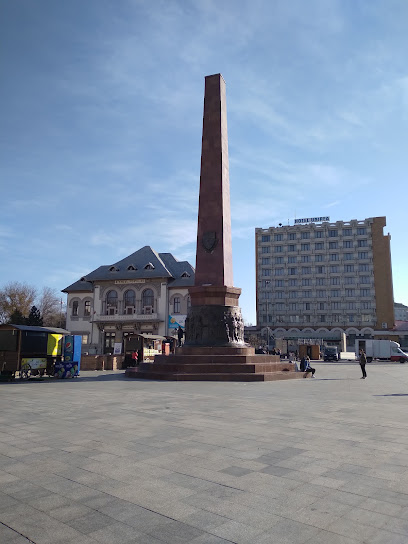
G.M. STYLE
Discover the vibrant shopping experience at G.M. STYLE in Focșani, where fashion meets fun in a lively atmosphere.
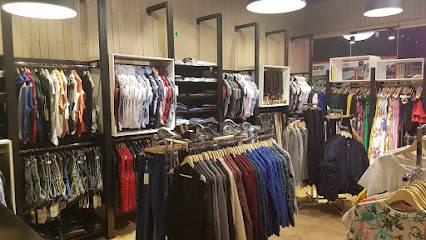
Dili Beauty Shop
Discover a captivating world of scents at Dili Beauty Shop in Focșani, where fragrance meets artistry and quality.
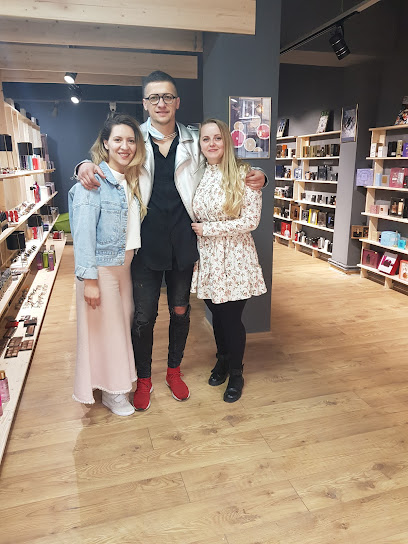
Magazin En Vogue
Explore the latest fashion trends at Magazin En Vogue, a premier clothing store in Focșani offering quality apparel for every style.
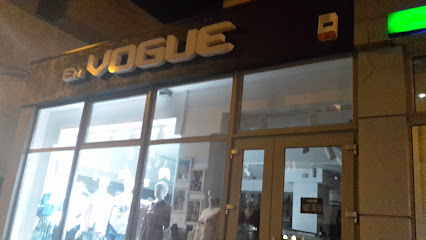
Essential bars & hidden hideouts
Intim
Experience the best of Focșani dining at Intim, where traditional flavors meet modern culinary art in a cozy atmosphere.
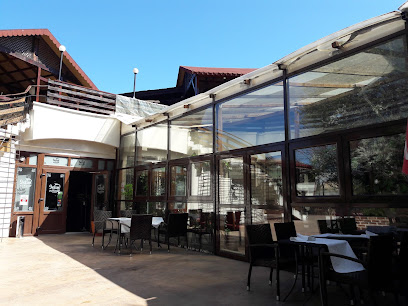
Urban Bistro & Events
Experience the vibrant flavors of Urban Bistro & Events in Focșani, where great food meets a lively atmosphere and fine wines.
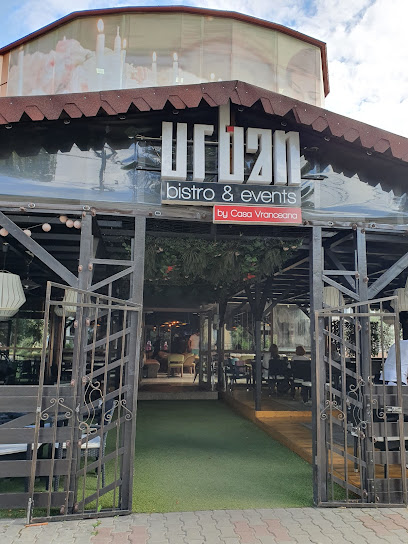
Restaurant - Fusion Restaurant & Lounge
Savor a unique blend of culinary delights at Fusion Restaurant & Lounge in Focșani, where traditional flavors meet modern creativity.
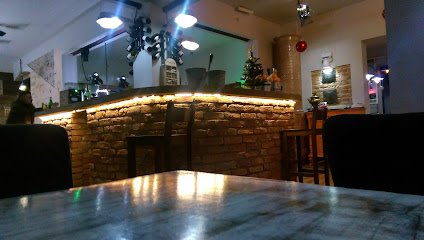
HavanaFocsani
Experience the vibrant nightlife at HavanaFocsani, a lively pub and lounge in Focșani, Romania, perfect for relaxation and socializing.
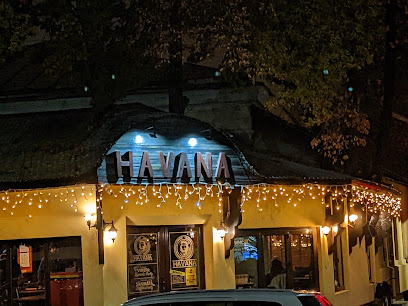
Queen Pub
Experience the vibrant atmosphere and delightful local flavors at Queen Pub in Focșani, where every visit is a celebration of good food and great company.
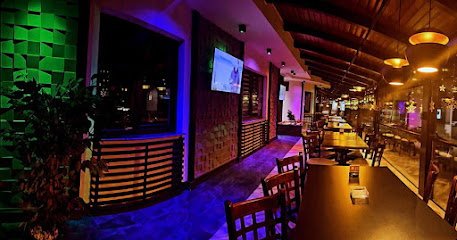
Rincon
Experience the vibrant nightlife at Rincon, a must-visit pub in Focșani known for its great drinks, live music, and friendly atmosphere.
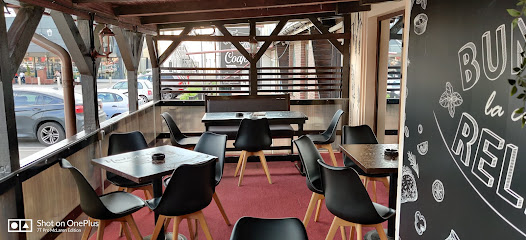
Maze - Restaurant - Lounge
Maze Restaurant - Lounge in Focșani offers a unique fusion of local flavors and chic ambiance, perfect for every occasion.
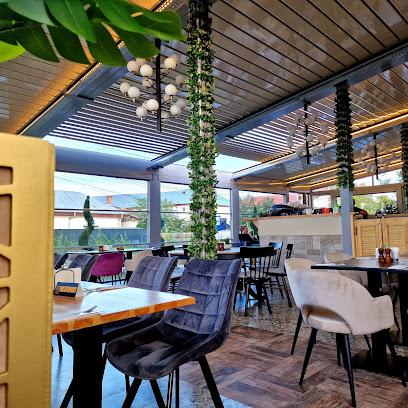
Club LIFE
Experience the vibrant flavors of Focșani at Club LIFE, where delicious grilled dishes meet a lively atmosphere for an unforgettable dining experience.
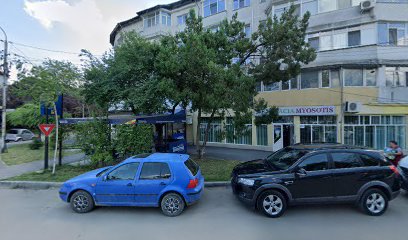
Exxod Pub
Experience the vibrant nightlife of Focșani at Exxod Pub, where great drinks and a lively atmosphere await.
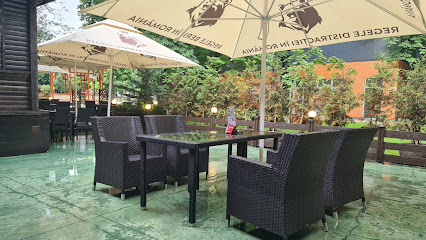
Pulse Studio
Discover the vibrant Pulse Studio in Focșani, where local flavors meet a lively atmosphere for an unforgettable night out.
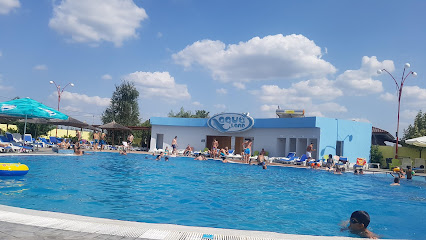
Braseria Miorita
Experience the vibrant atmosphere and local flavors at Braseria Miorita, a charming bar in Focșani, perfect for unwinding after a day of exploration.
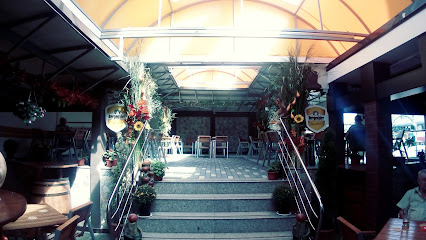
Harlem
Experience the vibrant nightlife of Focșani at Harlem Pub, where local craft beers and delicious bites await in a lively atmosphere.
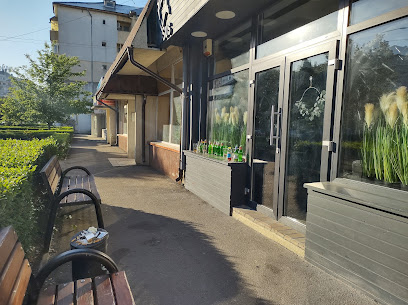
Atlantic
Experience the lively atmosphere of Atlantic Bar in Focșani, where refreshing drinks and local culture meet in a cozy setting.
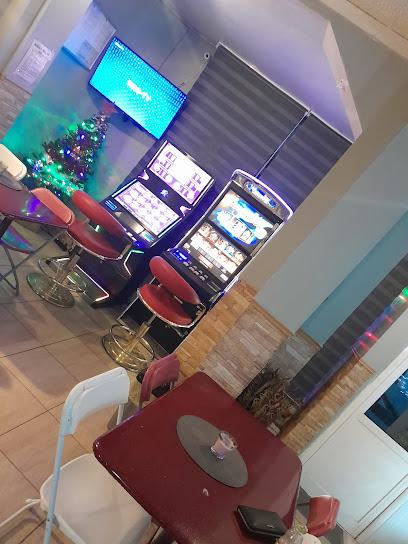
Eden
Discover Eden in Focșani - a cozy bar offering a vibrant atmosphere, delicious drinks, and a taste of local nightlife.
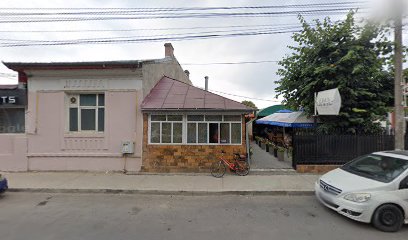
Local Phrases
-
- HelloSalut
[saˈlut] - GoodbyeLa revedere
[la re.veˈde.re] - YesDa
[da] - NoNu
[nu] - Please/You're welcomeTe rog/Cu plăcere
[te rog/ku ˈplə.t͡ʃe.re] - Thank youMulțumesc
[mul.t͡suˈmesk] - Excuse me/SorryScuzați-mă/Îmi pare rău
[skuˈza.tsɨ mə/imʲ ˈpare rəw] - How are you?Ce faci?
[t͡ʃe fak] - Fine. And you?Bine. Și tu?
[biˈne ʃi tu] - Do you speak English?Vorbiți engleză?
[vorˈbit͡sʲ enˈglezə] - I don't understandNu înțeleg
[nu ɨnt͡seˈleɡ]
- HelloSalut
-
- I'd like to see the menu, pleaseAș dori să văd meniul, vă rog
[aʃ doˈri sə vad meˈni.ul və rog] - I don't eat meatNu mănânc carne
[nu mɨˈnɨŋk karˈne] - Cheers!Noroc!
[noˈrok] - I would like to pay, pleaseAș dori să plătesc, vă rog
[aʃ doˈri sə pləˈtesk və rog]
- I'd like to see the menu, pleaseAș dori să văd meniul, vă rog
-
- Help!Ajutor!
[aˈʒu.tor] - Go away!Du-te!
[du.te] - Call the Police!Sună la Poliție!
[su.nə la po.lit͡si.e] - Call a doctor!Sună un doctor!
[su.nə un docˈtor] - I'm lostM-am rătăcit
[mam rətəˈt͡ʃit] - I'm illSunt bolnav
[sunt bolˈnav]
- Help!Ajutor!
-
- I'd like to buy...Aș dori să cumpăr...
[aʃ doˈri sə kumˈpar] - I'm just lookingDoar mă uit
[do̯ar mə uit] - How much is it?Cât costă?
[kɨt kosˈtə] - That's too expensiveEste prea scump
[ˈeste pre̯a skump] - Can you lower the price?Puteți să scădeți prețul?
[puˈteɨt͡s sə ˈskəd͡ʒet͡s pretsul]
- I'd like to buy...Aș dori să cumpăr...
-
- What time is it?Cât este ora?
[kɨt ˈes.te oˈra] - It's one o'clockEste ora unu
[ˈeste oˈra unu] - Half past (10)Jumătate (la zece)
[ʒu.məˈta.te (la ˈze.ʧe)] - MorningDimineața
[di.miˈne̯at͡sa] - AfternoonDupă-amiază
[duˈpə a.mjaˈzə] - EveningSeara
[ˈse̯a.ra] - YesterdayIeri
[ˈjerʲ] - TodayAstăzi
[asˈtəzʲ] - TomorrowMâine
[mɨˈi.ne] - 1Unu
[uˈnu] - 2Doi
[doj] - 3Trei
[trej] - 4Patru
[ˈpatru] - 5Cinci
[ˈʧint͡ʃʲ] - 6Șase
[ʃa.se] - 7Șapte
[ˈʃapte] - 8Opt
[opt] - 9Nouă
[no.uə] - 10Zece
[ˈze.ʧe]
- What time is it?Cât este ora?
-
- Where's a/the...?Unde este unul/o...
[ˈun.de es.te uˈnul/o] - What's the address?Care este adresa?
[ka.re es.te aˈdresə] - Can you show me (on the map)?Poți să-mi arăți (pe hartă)?
[po.tsɨ səmʲ aˈrətsʲ (pe harˈtə)] - When's the next (bus)?Când este următorul (autobuz)?
[kɨnd es.te urˈmətorul (ˌaw.toˈbuz)] - A ticket (to ....)Un bilet (spre ...)
[un biˈlet spre]
- Where's a/the...?Unde este unul/o...
History of Focsani
-
Focsani, located in the historical region of Moldavia, dates back to the medieval period. It is first mentioned in documents from the 15th century, during the reign of Stephen the Great. The town developed as a significant market center due to its strategic location on the trade routes between Moldova and Wallachia.
-
Focsani played a crucial role in the unification of the Romanian Principalities. On January 24, 1859, the Union of Moldavia and Wallachia was proclaimed, and Focsani, being on the border of the two regions, became the meeting point for political discussions and celebrations. The city symbolizes the unity and birth of modern Romania.
-
During the Russo-Turkish War of 1787–1792, the Treaty of Focsani was signed on September 19, 1791, between the Russian Empire and the Ottoman Empire. This treaty marked an important step towards the end of hostilities and the reshaping of the political landscape in Eastern Europe.
-
Focsani witnessed significant military activity during World War I, especially during the Romanian Campaign of 1916-1917. The city was a key logistical base for the Romanian Army. The Battle of Mărășești, which took place nearby, was one of the most important battles fought by Romania in World War I, securing a defensive victory against the Central Powers.
-
Focsani boasts a rich cultural heritage, with several notable landmarks. The Old Town Hall, built in the 19th century, is a fine example of neo-classical architecture. The city's numerous churches, including the St. John the Baptist Church, reflect its deep religious roots. Focsani is also known for its vineyards, part of the famous Vrancea wine region, contributing to the local economy and culture.
-
In the 20th and 21st centuries, Focsani developed into a modern urban center. Post-World War II industrialization brought significant changes, with industries such as textiles, food processing, and machinery becoming prominent. The city has continued to grow and modernize, while still preserving its historical and cultural identity.
Focsani Essentials
-
Focsani is located in the Vrancea County of Romania. The nearest international airport is Henri Coandă International Airport in Bucharest, approximately 180 kilometers away. From Bucharest, you can take a direct train to Focsani, which takes around 2 to 3 hours. Alternatively, buses and rental cars are also available, offering a convenient way to travel to Focsani.
-
Focsani is a compact city, making it easy to explore on foot. For longer distances within the city, taxis are readily available and relatively inexpensive. Public buses operate regularly and connect various parts of the city. Renting a car can be a good option for exploring the surrounding areas and nearby attractions at your own pace.
-
The official currency in Romania is the Romanian Leu (RON). Credit cards are widely accepted in hotels, restaurants, and larger shops. However, it is advisable to carry some cash, especially when visiting smaller establishments or rural areas. ATMs are available throughout Focsani, making it easy to withdraw cash as needed.
-
Focsani is generally a safe destination for tourists. However, like any city, it is important to take standard precautions. Avoid walking alone at night in unfamiliar areas and keep an eye on your belongings in crowded places. While Focsani does not have specific high-crime areas targeting tourists, it is always best to stay vigilant and aware of your surroundings.
-
In case of emergency, dial 112 for immediate assistance. The local police station and medical facilities are available in Focsani. It is recommended to have travel insurance that covers medical emergencies. For minor health issues, there are pharmacies in the city where you can purchase over-the-counter medications.
-
Fashion: Do dress modestly, especially when visiting religious sites. Avoid wearing overly revealing clothing. Religion: Do respect local customs and traditions. Always cover your head when entering churches. Public Transport: Do be respectful and give up your seat to elderly passengers. Don't eat or drink on public transport. Greetings: Do greet people with a handshake. A friendly smile and 'Bună ziua' (Good day) are appreciated. Eating & Drinking: Do try local delicacies and accept food offerings graciously. Don't refuse hospitality, as it is considered impolite.
-
To experience Focsani like a local, visit the local markets where you can buy fresh produce and traditional Romanian goods. Engage with locals, as they are often friendly and willing to share stories about the city's history and culture. Don't miss visiting the local wineries, as Vrancea County is renowned for its vineyards and wine production. For a unique experience, attend one of the local festivals, which often feature traditional music and dance.
Trending Landmark in Focsani
-
Monumentul istoric ”Ansamblul Piaţa Unirii”
-
Popular Athenaeum Maior Gheorghe Pastia
-
Muzeul Unirii
-
Monumentul istoric ”Mausoleul Eroilor (1916 - 1919)” Focșani
-
Monumentul istoric ”Bornă de hotar”
-
Centrul Național de Informare și Promovare Turistică
-
Directorate for Culture Vrancea
-
Statuia Independenței - Focșani
-
Statuia lui Ion Mincu
-
Monumentul istoric ”Fosta Cameră de comerţ” (sec. XIX)
-
Monumentul istoric ”Clădirea Prefecturii”
Nearby Cities to Focsani
-
Things To Do in Brasov
-
Things To Do in Bucharest
-
Things To Do in Iasi
-
Things To Do in Sighisoara
-
Things To Do in Chișinău
-
Things To Do in Pitesti
-
Things To Do in Constanta
-
Things To Do in Tiraspol
-
Things To Do in Orhei
-
Things To Do in Ruse
-
Things To Do in Suceava
-
Things To Do in Râmnicu Vâlcea
-
Things To Do in Shumen
-
Things To Do in Varna
-
Things To Do in Cluj-Napoca








